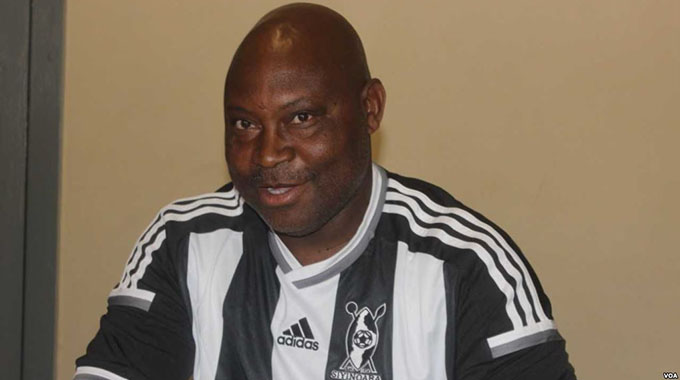Child marriages: A bane of Africa

Ruth Butaumocho African Agenda
A dark cloud hung over Bvumbura Village in Chivhu after news that a 14-year-old girl from the Johane Marange apostolic church had died, spread through the community.
The death of Delight Masomeke, who had given birth three days early on December 29, 2022 was met with fury and outrage across Zimbabwe and beyond as people sought an explanation on why the family had married off such a young girl.
Her death sparked an outcry in Zimbabwe and beyond with many calling for the imposition of stiff sentences on both the perpetrators and the families that allow and bless such unions.
A flurry of activities emerged after the incident. Civic society and several other stakeholders immediately circulated a petition against child marriages which garnered thousands of signatures, and many campaigners hoped her case would expose the practice of child marriage which is outlawed in the country but has continued, despite the threat of legal action.
A year later another life has been lost after a 13-year-old “bride” married to a 41-year-old man died at a shrine in Chitungwiza during labour a fortnight ago as she was being transferred from one shrine to the other, yet her condition was critical.
The sad and unfortunate deaths of the under-age girls married off, gives an insight into the bane of child marriages that African leaders continue to battle with despite the existence of a litany of pieces of legislation to curb the problem.
According to the campaign group, Girls Not Brides in Zimbabwe, over a third of girls are married before the age of 18 and five percent are married before their 15th birthday.
Such incidences of girls’ violations prompted President Mnangagwa to invoke the Presidential Powers Act to amend the Criminal Law (Codification and Reform) Act, which will see paedophiles serving up to 10 years in prison for having sex with girls below 18 years including trafficking them to foreign countries to engage in sex work.
According to the Presidential Powers (Temporary Measures) (Criminal Laws (Protection of Children and Young Persons)) Regulations, 2024 contained in Statutory Instrument 2 of 2024, the age threshold within which one can make valid sexual consent was raised from 16 to 18 years.
While the Constitution defines children as those below the age of 18, the Criminal Law (Codification and Reform) Act before its amendment, defined a young person as one who is below 16, thereby creating a gap in the law which would possibly expose children above 16 to sexual exploitation.
The nation now hopes that Parliament will fast track the promulgation of a law that criminalises sexual or indecent relations with a person below the age of 18 since the lifespan of the Presidential powers is only six months.
Even after the law is passed, there will still be need for continued awareness on the dangers of child marriages because it is a societal problem that has been allowed to thrive, despite the dangers it pose to the affected girls.
It is sad and very unfortunate that the country still has individuals and communities that are actually promoting child marriages, a human rights violation that continues to receive widespread condemnation across.
Some churches and apostolic sects in Zimbabwe have also presented its share of burdens on girls, with some sects like the apostolic church condoning early child marriages, that are done secretly but with the blessing of the girl’s family and church leaders.
It does not need a rocket scientist to reveal that child marriages practice which are common in several apostolic sects in Zimbabwe and being encouraged and promoted in some communities across Africa, disproportionately affect girls.
When they are married off, young girls often drop out of school and face physical risks, especially during pregnancy as in the case of the two who lost their lives during and after giving birth.
Even if they survive after giving births, the social, health and economic impacts of child marriages hinder the girls’ progression later in life.
It still defies the logic why some religious sects still marry off young girls, when the practice is long condemned, a criminal offence and detrimental to the young girl, who would have been married off.
Instead of focusing on the perpetrator, Government should also consider arresting everyone involved in the negotiations, to curtail such mischievous acts, which borders on sadism.
Biologically and physically, a 13-year-old girl cannot be someone’s wife and let alone a sister-in-law for any right thinking person, because she is simply a child, who needs protection instead of being saddled by adult responsibilities.
Suffice to say, the collective measures being taken in the region at a country level has seen a decline in the cases of child marriages.
However, the problem remains prevalent in West and Central Africa with the United Nations United Nations International Children’s Emergency Fund saying six of the world’s 10 countries with the highest rates of child marriage are in West and Central Africa.
Average prevalence across the region remains high: about 41 per cent of girls marry before reaching the age of 18.
Rapid growth of the child population in African countries makes it increasingly urgent that countries accelerate their efforts to address child marriage.
Ending child marriage is essential to give millions of adolescent girls the opportunity to realise their full potential, while improving maternal and child health.
The Sustainable Development Goals target the elimination of all forms of harmful practices, including child marriage.
In West and Central Africa, there is growing momentum for ending child marriage, including the African Union member states’ endorsement of an ‘African Common Position to End Child Marriage’ and the ‘Campaign to End Child Marriage in Africa’.
Several countries have developed and begun to implement national strategies or action plans addressing child marriage.








Comments